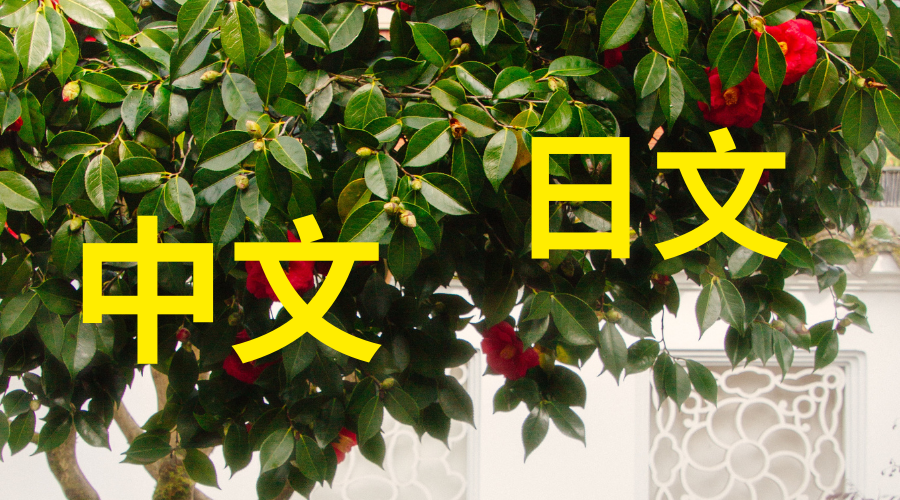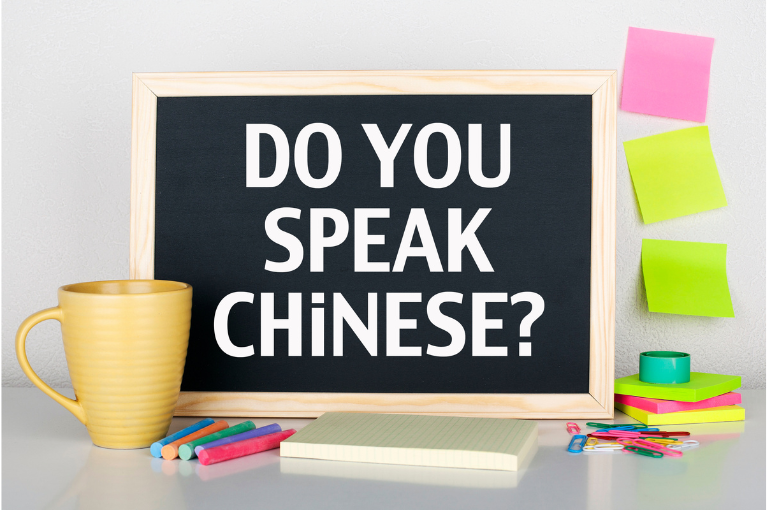Chinese vs Japanese
中文与日文 (zhōng wén yú rì wén)
Achieving fluency in a foreign language is no easy task. Achieving fluency in an Asian language is particularly difficult if you are a westerner. If you have decided to study an Asian language, strong arguments can be made for studying Chinese and/or Japanese. Since the time investment required to master either language will be substantial you will want to choose wisely.
Should you study Chinese? First consider that what we call “Chinese” in English is actually a group of mutually unintelligible languages spoken in China and elsewhere that share a common writing system. There are different regional languages around China, and although regions will use their own spoken language with one another, education and national commerce is conducted in Mandarin. A common writing system is great, but a common tongue makes it even easier. In Taiwan, they refer to Mandarin as 國語; pinyin: Guóyǔ; or the National Language. In China you’ll hear it referred to as 普通话 pinyin: Pǔtōnghuà or common speech. When you are not specifying the dialect, you can do as we did in the blog title and just call it the Chinese language: 中文; pinyin:zhōng wén. The assumption will be that you are referring to Mandarin.
There are over 1.3 billion native speakers of Chinese. In addition, some analysts are saying that China is on track to become the leading world economy by 2050. Is China’s impressive track record of economic growth of the past few decades enough of a reason to study Chinese? It’s certainly something to consider.
What about Japanese? There are far fewer native speakers of Japanese, (approximately 128 million) or one tenth the number of Chinese speakers. Numbers are not everything however. In making your decision you may want to factor in the significant cultural influence of the Japanese people. Although their numbers fall short, their culture is widely admired and they maintain high status as a science and technology powerhouse. For this reason people still opt to study Japanese.
Maybe you should consider the difficulty of the language. Chinese tops most any list of the hardest languages to learn. Learning Japanese is certainly not easy. While it usually ranks below Chinese, it is almost always in the top ten of any list of difficult languages.
Why is Chinese harder to learn? From outward appearances the languages appear to be related, but in fact, that is not the case. This common misconception arises because Japanese uses many of the same characters (pictographs and ideographs) that Chinese uses (kanji 漢字) in Japanese or hànzì (漢字 in Chinese).
In Japan, in addition to the kanji characters introduced to Japan from China they use two additional “alphabets”, (syllabaries) called hiragana and katakana. Kanji characters are pictographs that represent ideas. Each hiragana and katakana character represents a sound, or one of the syllables of a word. You will often see all three writing systems found in a single sentence.
A further indication that the languages are in fact unrelated is that the readings of kanji will often be very different to those of Chinese characters. While Chinese characters are vocalized in one syllable, Kanji will often be two or more syllables long. Meanings between the two can sometimes be guessed, but in other instances, guesses will be far from the mark.
Linguists tell us that Chinese is a Sino-Tibetan language distantly related to the languages of Tibet & Burma. There is some disagreement among linguists as to the origin of Japanese, but many consider it to be a language isolate, a linguistic term that means that the language stands alone with no relationship roots to other tongues.
Another striking difference between the languages is that Chinese is a tonal language. The way you say a word and the inflections used changes the meaning of it. While in Japanese there are occasional words whose meaning will change depending on the syllable stressed, there are no tones. Some find the tonal element particularly challenging.
The word order in Chinese is actually closer to English than it is to Japanese. It is a subject-verb-object (SVO) language while Japanese is a subject-object-verb (SOV) language. This should make it easier or harder to learn, right? Hmmm. Maybe.
So, yes while the languages share some similarities, they are in fact very different. So, what will you decide? It is a very personal decision. I suggest you weigh the differences, consider your interests, your goals and objectives and then decide. Whatever you decide, jump in. Don’t wait. Language learning is a cumulative skill. It builds on itself. Start today, set goals and enrich your life.
“A journey of a thousand miles begins with a single step”
千里之行,始於足下
qiān lǐ zhī xíng, shǐ yú zú xià







